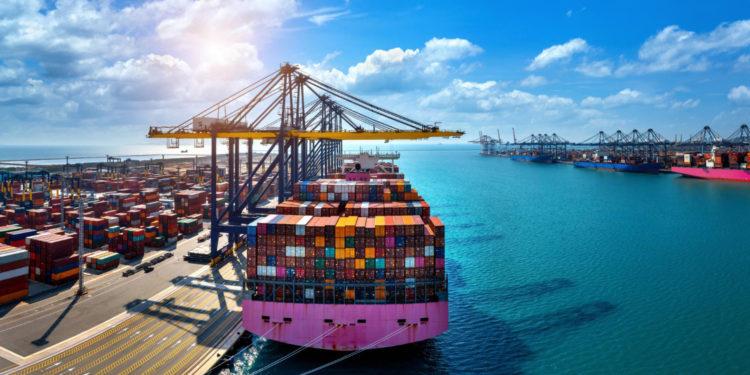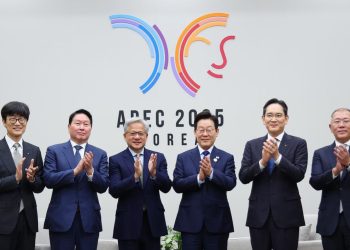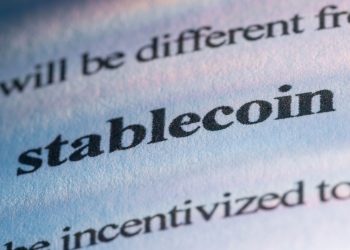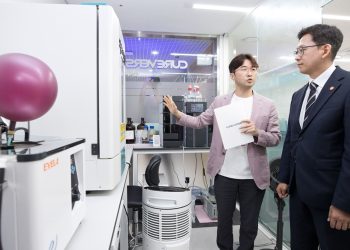South Korea is providing financial support of up to $135.9 million (180 billion won) to Korean shipbuilders. The Ministry of Trade, Industry, and Energy (MOTIE) announced the financial support on May 10th, with a focus on advancing autonomous vessels and helping local shipbuilders excel in the global eco-friendly ship market.
Trade Minister Lee Chang-yang announced the financial support during his visit to the Ulsan shipyard. He later attended the naming ceremony for South Korea’s first domestic liquefied natural gas (LNG) bunker vessel, Blue Whale.
Hyundai Heavy Industries built the vessel over a period of 3 years, valuing it at $41.74 million (55.3 billion won). Additionally, it is the first vessel to be equipped with the advanced Korean-type KC-2 cargo design. It is capable of supplying LNG for 250 trucks directly to ships. The ministry expects the Blue Whale to reduce the time and space constraints of LNG bunkering and increase efficiency once deployed in service.
South Korea has been expanding its own cargo technologies for some time. The country’s shipbuilding capabilities have caught the attention of the world. With rising demand for eco-friendly ships that use green fuels like LNG, LPG, methanol, and electricity, the market is becoming increasingly favorable for Korean shipbuilders.
However, China and few countries in Europe remain major competitors in the shipbuilding industry. The Korean government is working to secure a good place for domestic shipbuilders in the global marketplace.
Korean shipbuilders securing massive LNG ship orders
In the first three months of 2023, South Korean shipbuilders secured nearly 40 percent of total ships ordered worldwide. The global orders of eco-friendly ships amounted to 26.06 million compensated gross tonnage (CGT) in 2022.
The Korean shipbuilders are leading the market volume with 70 percent in the first quarter of 2023. The country has also secured contracts for 17 out of 19 large-size LNG carriers ordered globally.
The government’s new financial support plan includes providing refund guarantees to the shipbuilders. It further includes adding three more insurance companies including Seoul Guarantee Insurance.
However, the rising number of orders has also led to a workforce shortage of about 14,000 workers in the shipbuilding industry. To address this, the Ministry of Trade is working with related industries and ministries to secure 5,500 additional workers, including foreigners.
It’s expected that this year, the Korean shipbuilding industry’s exports will rise by 18 percent compared to last year, crossing the value of $21 billion. Last year, South Korea christened its first dual-fuel smart electric passenger ship. South Korean shipbuilding company Hyundai Mipo Dockyard, a part of the Hyundai Heavy Industries Group, built the vessel in Ulsan







